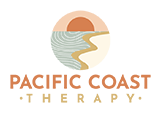Postpartum Depression Treatment in Santa Cruz, CA
Pregnancy, the birthing experience, and being a new parent can be beautiful, transformative, and enlightening experiences. In fact, this is a societal expectation. Comments or questions like, “You must be so happy!”, “You’ve wanted this your whole life, just be grateful.”, “Breast or bottle fed?”, and “I can’t wait to meet him or her!” only add to the pressure, stress, anger, and anxiety a new parent feels.
A common myth about postpartum depression is that you don’t love your child. For decades, people have associated postpartum depression with feeling disconnected from your baby. In reality, parents often feel intense love for their children. But, they may also feel a self-blame that can be paralyzing.


At Pacific Coast Therapy, we recognize the severity and intensity of the many postpartum depression symptoms.
There is no specific cause for postpartum depression. But, common explanations may include physical and emotional changes. After childbirth, a dramatic drop in hormones (estrogen and progesterone) in your body may contribute to postpartum depression. Other hormones produced by your thyroid gland also may experience sharp drops. These can leave you feeling tired, sluggish, and depressed. When you’re sleep-deprived and overwhelmed, you may have trouble handling even minor problems. You may be anxious about your ability to care for a newborn. You may feel less attractive and struggle with your sense of identity. Or, feel that you’ve lost control over your life. Any of these issues can contribute to postpartum depression.
These Symptoms Could Include:
-
Depressed mood or severe mood swings
-
Intense irritability and anger
-
Fear that you’re not a good parent
-
Hopelessness
-
Feelings of worthlessness, shame, guilt, or inadequacy
-
Diminished ability to think clearly, concentrate or make decisions
-
Restlessness
-
Severe anxiety and panic attacks
-
Thoughts of harming yourself or your baby
-
Recurrent thoughts of death or suicide
Some things you may be experiencing are:
-
Stressful events during the past year. This may include pregnancy complications, illness, or job loss
-
Your baby has health problems or other special needs
-
Gave birth to more than one child
-
Problems in your relationship with your spouse or significant other
-
Feeling out of control
-
Career or financial concerns
-
Having a traumatic birth experience
Schedule your complimentary consultation today!
You may experience some or all of these postpartum depression symptoms after giving birth. But, it’s important to remember these symptoms are NORMAL. It’s normal for you to feel angry, sad, and/or hopeless as a new parent, even if it’s not your first child. It’s normal for you to want or need support, but feel too ashamed to ask for help. And, it’s normal to feel like you are drowning or that motherhood is not as bright and cheerful as you first expected.
At Pacific Coast Therapy, we seek to understand the unique experience of every new parent.
We aim to help them overcome their symptoms of postpartum depression and be the best person and parent they can be. We believe cultural, societal, and familial pressures can all contribute to your symptoms. This is why we are equipped to help you explore how to address these pressures. Always remember: you are enough, you are doing the very best you can, and it’s okay to not be okay. Please reach out to a team member at Pacific Coast Therapy if you or someone you love may be struggling with postpartum depression.

